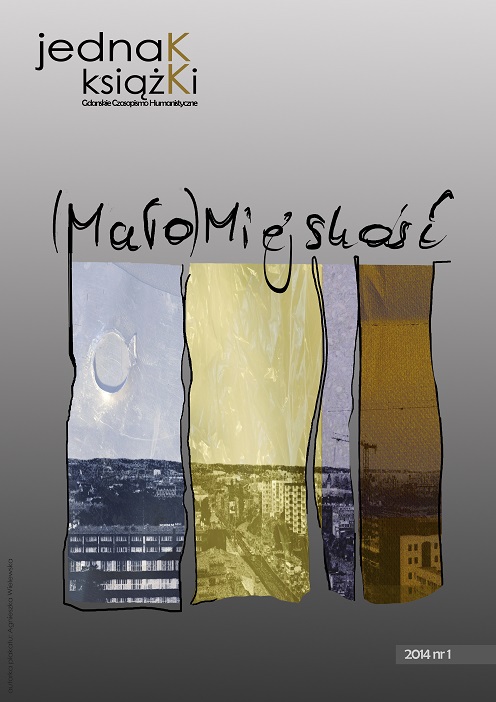„On będzie miasto” – o figurze Boga-miasta i sakralizacji przestrzeni w poezji Wojciecha Kudyby
Abstrakt
In the collection of poetry entitled ‘Tyszowce i inne miasta’ (‘Tyszowce and other cities’) by Wojciech Kudyba, we deal with the metaphysical and spiritual spatial orientation. The poetry has its origins in the romantic worldview and it consciously defies the modernist urbanistic myth. Human life is shown as a constant wandering and quest for pure places – places of origin, return to ‘oneself’ and then the pilgrimage to the holy cities. The city is treated as an axis mundi i.e. cosmogonical center of the world, which for the lyrical subject of this poetry – homo religiosus constitutes the central place in the religious worldview characterized by the symbolism of a circle and vertical movement. Other elements that play a role in sacralization include idyllic description of the childhood land, which similarly as in Mickiewicz’s works is treated as a place of religious initiation, and secure space. The secure space serves as a concept in which a clear distinction between good and evil is delineated and the creation of the metaphor of the God the city takes place. This metaphor embodies thinking about the city as a stronghold, juxtaposing the cosmos of a human being with the cosmos of a broken modern world and the God who has not left the man till the end, the God who is man’s master, home and conversation.

 Uniwersyteckie Czasopisma Naukowe
Uniwersyteckie Czasopisma Naukowe




